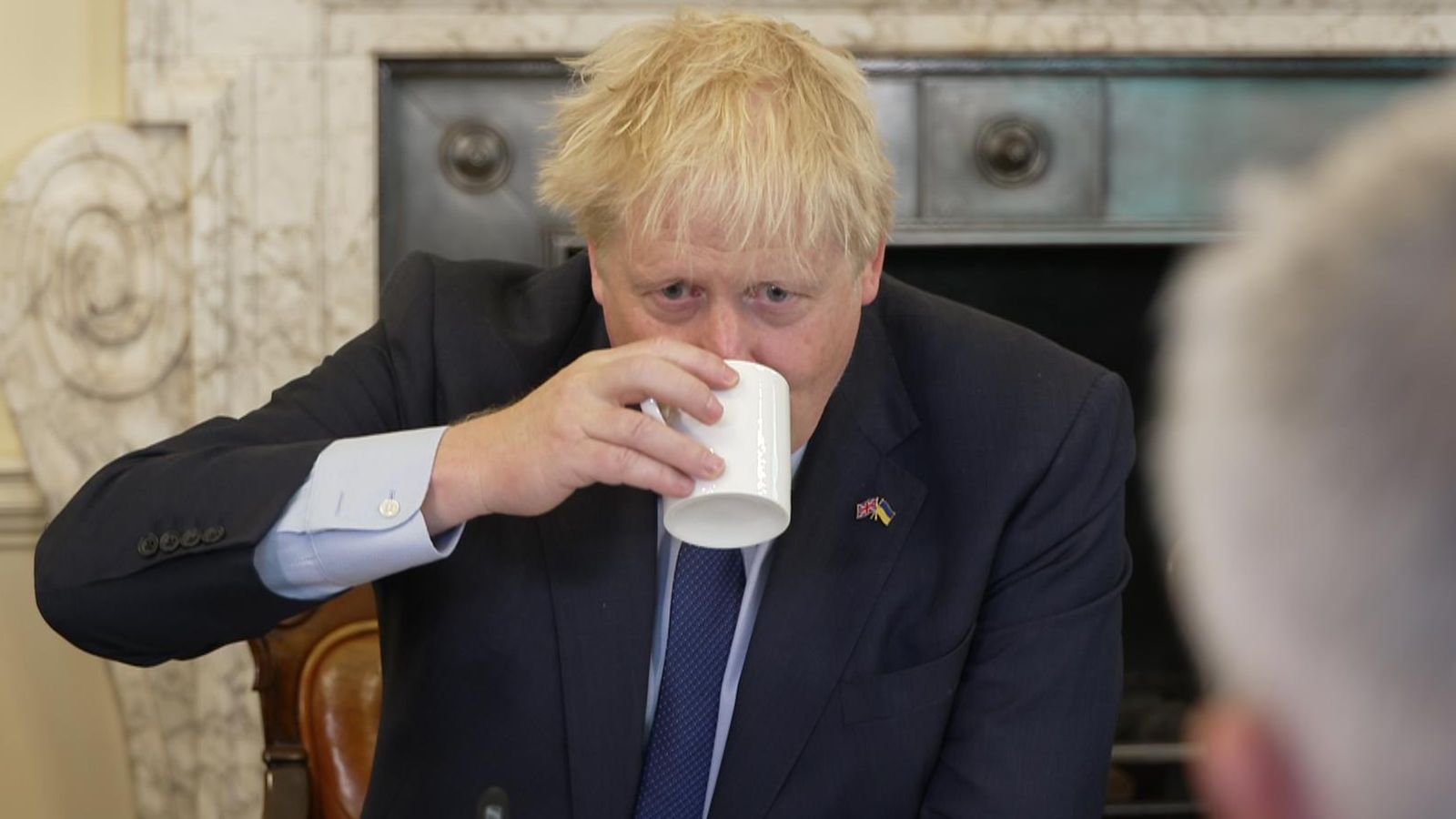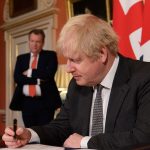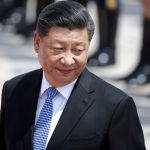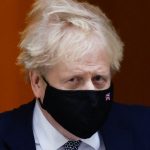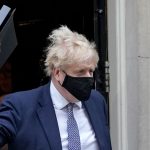Boris Johnson has sought to draw a line under a bruising confidence vote by urging Cabinet ministers to focus on tax cutting and levelling up.
The prime minister won the backing of Tory MPs by 211 votes to 148 – leaving allies to say it is now time to move on from questions about his leadership but critics to claim that the scale of the revolt means he should quit.
It was a bigger rebellion against the PM than that suffered by his predecessor Theresa May in 2018, months before she was finally ousted.
Politics Hub: Cabinet told to remove Johnson
Monday’s vote came after months of damaging revelations about parties in Downing Street during the COVID-19 pandemic and the spectacle of Mr Johnson being booed as he attended a Jubilee thanksgiving service.
But opening a Cabinet meeting on Tuesday, the prime minister said: “We are able now to draw a line under the issues that our opponents want to talk about.”
Mr Johnson spoke of “delivering tax cuts”, cutting the costs of business as well as government, the “levelling up” agenda to address regional inequality, measures to address the cost of living surge, and improving public services.
Boris Johnson: Retribution or reaching out? The challenge the wounded PM now faces
Boris Johnson could face another confidence vote in six months as committee looking at rule change, says rebel MP
Boris Johnson confidence vote: Analysis
He told ministers: “Over the course of the next few weeks, I’m going to ask everybody to come forward with ways in which we cut costs, drive reform, and make sure that we understand that in the end it is people who have the best feel for how to spend their own money rather than the government or the state.
“And that is our fundamental, Conservative instinct.”
Technically the PM is now safe from being overthrown by his own MPs for another year – as party rules state that another confidence vote cannot be held in that time.
Please use Chrome browser for a more accessible video player
But one rebel, Tobias Ellwood, told Sky News that he understood the 1922 committee of backbench Tories was looking at changing those rules.
The PM could face a further blow to his authority at two by-elections on 23 June in the West Yorkshire seat of Wakefield and in the Tiverton and Honiton constituency, in Devon.
Former Tory leader Lord Hague was among those calling for Mr Johnson to go now, arguing in an article in The Times that “the damage done to his premiership is severe”.
He said that he would have regarded a situation in which more than a third of MPs voted against his leadership as “untenable”.
Backbench MP John Baron, who has voiced disquiet about the PM’s repeated denials of knowledge of lockdown rule-breaking, said stepping down now would be the “honourable thing” for him to do.
But Mr Johnson won backing from colleagues including his deputy Dominic Raab, who told Sky News that the PM had not been disheartened by the vote and now has “renewed energy” to deliver his policies.
Liz Truss, often touted as a leadership contender, played down speculation about her future ambitions saying she was “100% focused” on her job as foreign secretary.
Ms Truss told reporters: “It is time to draw a line, move forward and focus on what people want us to be talking about – housing, childcare, delivering on lower taxes.”
Please use Chrome browser for a more accessible video player
Volodymyr Zelenskyy, Ukraine’s president, told the Financial Times he was “very happy” that Mr Johnson had survived the vote, describing him as a “true friend” of the embattled nation.
Lord Frost, the former Brexit minister, told the BBC that the scale of the vote was a sign of “the big problem… that we are delivering an economic policy that is not going to deliver prosperity and wealth”.
He called for previously-announced rises to National Insurance and corporation tax to be reversed.
The Liberal Democrats are pushing for a Commons no-confidence vote saying that “every Conservative MP who has a shred of decency must back our motion” though there is no date fixed for the move.
Meanwhile, Labour won a parliamentary vote calling on the government to implement recommendations from the Committee on Standards in Public Life, a sleaze watchdog to improve standards in Westminster, though the vote was non-binding and Tory MPs abstained.
The measures would include giving the PM’s ethics adviser Lord Geidt the power to launch his own investigations into breaches of the ministerial code.
